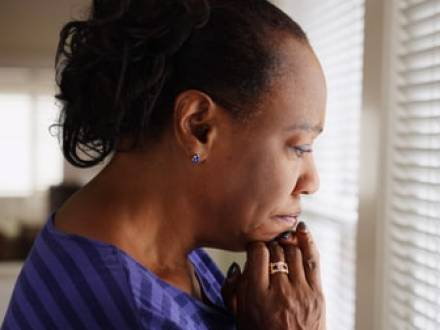Is Living Apart the Same as Legal Separation in Illinois?
 Perhaps your marriage began falling apart several years ago when your husband moved out of the house and into his own apartment while you remained in the marital home. Although your husband pays child support, spends time with the child, and helps you pay the bills, it is essential to recognize that this does not constitute a legal separation under Illinois law, and may have significant adverse consequences.
Perhaps your marriage began falling apart several years ago when your husband moved out of the house and into his own apartment while you remained in the marital home. Although your husband pays child support, spends time with the child, and helps you pay the bills, it is essential to recognize that this does not constitute a legal separation under Illinois law, and may have significant adverse consequences.
Although you may not see much difference, living apart and legal separation are two entirely different things. Now, your husband is asking for a divorce, and his list of demands is making your head spin. Because you haven’t lived together for years, you may have assumed that if he ever asked for a divorce, your life would continue in much the same way. This is a situation that requires a highly experienced Will County, IL family law attorney who can help you sort out all the issues.
What is Legal Separation?
Legal separation is often used by a couple who are considering divorce but are not quite ready to take that step. Legal separation does not end a marriage, and the spouses cannot marry someone else. The most common reasons for legal separation include:
- Neither party is absolutely sure that divorce is what they want.
- One party may rely on the health insurance they get through their spouse’s employment.
- There are religious reasons to avoid divorce.
What Happens During a Legal Separation?
Even though a couple is not divorcing, the court can make many of the same determinations that are made during a divorce. The allocation of parental responsibilities and parenting time can be decided. Spousal support issues can be determined, and child support paid by one parent to the other. Unless both spouses agree, the court cannot divide marital property during legal separation.
The spouses must physically be living apart from one another when filing for a legal separation in the county where they reside. At least one of the spouses must have lived in Illinois for 90 days before filing a motion for legal separation. If one spouse has never lived in Illinois, the couple can still get a legal separation, but the court may not be able to decide issues like spousal support and child support. Custody can only be decided during a legal separation if the children have resided in Illinois for at least six months.
Are There "Rules" for Legal Separation?
During a legal separation, neither party can marry another person. If one spouse dies, the other inherits in the same way they would if they were living together (this is true whether a couple is legally separated or living apart). During a legal separation, each spouse might be responsible for the other spouse’s debts incurred while they are living apart. While this is equally true of the couple who is living apart without a legal separation, it is somewhat less likely.
What Could Go Wrong When a Couple Is Just Living Apart but Not Legally Separated?
After several years of living apart, the situation could deteriorate rapidly without a legal separation agreement if one spouse chooses to do any of the following:
- Make changes to the unofficial agreements between the couple regarding the division of marital assets
- Make changes to the unofficial agreement regarding custody and child support
- Refuse to continue paying spousal support even though there was a verbal agreement
- Attempt to make all the verbal agreements legal because one spouse has stopped following them
Living apart with no legal separation agreement brings financial risk to one or both spouses, can lead to complex property division issues during a divorce, and can result in much more challenging child custody and support matters in the future.
Contact a DuPage County, IL Divorce Lawyer
If you are considering legal separation or divorce, it can be extremely helpful to speak to a Naperville, IL divorce attorney from Law Office of Ronald L. Hendrix, P.C.. Attorney Hendrix is a court-appointed mediator who, in addition to his law degree, holds a master’s degree in guidance and counseling. Call 630-355-7776 to schedule your free consultation.

















